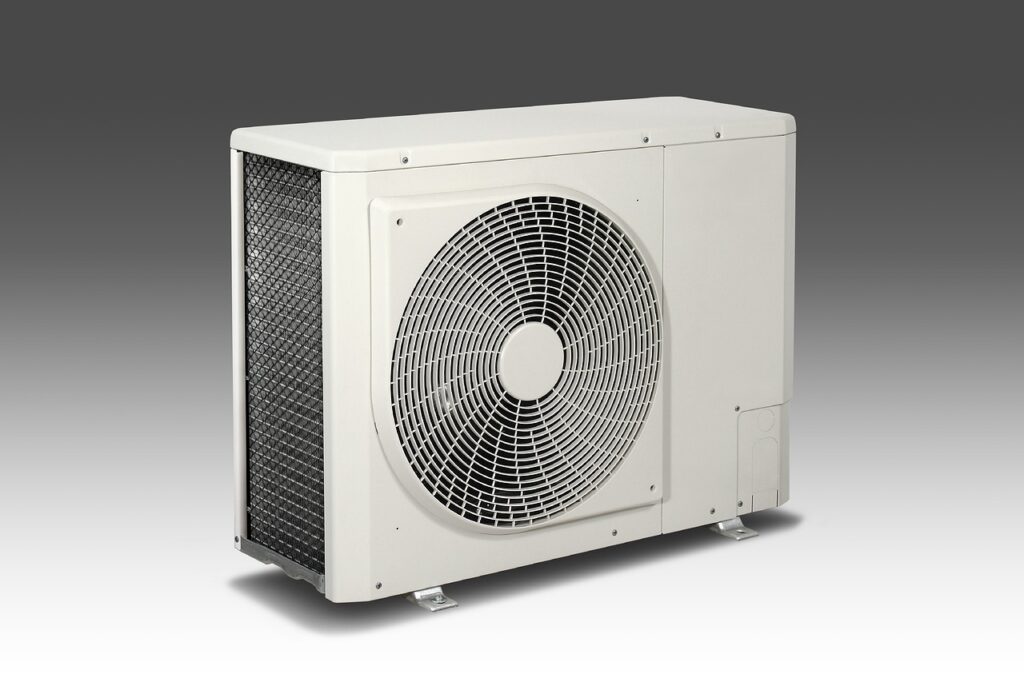Heating, ventilation, and air conditioning (HVAC) technicians play a crucial role in maintaining comfortable and healthy indoor environments. These skilled professionals are in high demand, ensuring that homes and businesses have efficient and well-functioning climate control systems. However, HVAC technician salaries can vary significantly based on factors such as location and education.
The median annual salary for HVAC Technicians is around $58,000, according to ZipRecruiter.
The impact of location on HVAC technician salaries is substantial. In certain regions, technicians can earn significantly higher wages due to factors like cost of living, job demand, and local economic conditions. Thus, it’s important for those entering the field to understand how their earnings may be affected by their geographic location.
Education is key in unlocking opportunities for career advancement. By pursuing higher education and certifications, HVAC technicians can increase their earning potential and open doors to new professional opportunities. In the ever-evolving world of HVAC technology, staying current with industry advancements through continued education is essential for success.
Factors Influencing HVAC Technician Salaries
Geographic Location
Location plays a significant role in determining HVAC technician salaries. Differences in cost of living, local demand for services, and regional economic conditions can all influence how much technicians earn in various areas. High-paying regions may offer better opportunities for earning potential, while lower-paying areas may require additional strategies to maximize income.
Level of Education and Certifications
Education and certification levels can greatly impact an HVAC technician’s salary. Technicians with specialized HVAC certifications and higher education degrees often command higher wages than those with only basic training. By investing in advanced education and certifications, technicians can improve their earning potential and marketability in the job market.
Years of Experience
Experience matters. As HVAC technicians gain experience in the field, their salaries typically increase. Those with many years of hands-on experience and a proven track record of success can command higher wages than entry-level technicians. Experience also opens doors to new opportunities and job positions with higher pay scales.
Industry Sector (Residential vs. Commercial)
The sector in which an HVAC technician works can also influence their salary. Commercial HVAC technicians, who work on larger and more complex systems, often earn higher salaries than residential technicians. Additionally, technicians specializing in niche areas like industrial refrigeration or building automation systems can command even higher wages.
Job Demand and Economic Factors
Job demand and economic factors play a role in determining HVAC technician salaries. When demand for HVAC services is high, technicians can often command higher wages. Conversely, during economic downturns or periods of low demand, salaries may stagnate or even decrease. Staying aware of job market trends and economic indicators can help technicians make informed decisions about their career paths and earning potential.

Top-Paying States for HVAC Technicians
According to recent data, the top five states with the highest average salaries for HVAC technicians are as follows:
- Washington, D.C.: $74,660
- Alaska: $72,200
- Hawaii: $71,310
- Minnesota: $70,080
- Massachusetts: $70,010
Salaries in these states are significantly higher than the national average, offering HVAC technicians the opportunity to earn more in these regions.
Factors Contributing to Higher Salaries in These States
Several factors contribute to the higher salaries in these top-paying states. Higher cost of living, increased demand for HVAC services, and strong local economies all play a role in driving up wages. Additionally, these states may have more stringent licensing requirements, resulting in a smaller pool of qualified technicians and higher pay for those who meet the necessary standards.
How to Increase Earning Potential in These Areas
To increase earning potential in these top-paying states, HVAC technicians should consider the following strategies:
- Pursue advanced education and certifications to stand out among the competition
- Gain experience in specialized areas, such as commercial or industrial HVAC, as these sectors often command higher wages
- Build a strong professional network to stay informed about job opportunities and industry trends
- Consider relocating to one of these high-paying states, but carefully weigh the pros and cons, including the higher cost of living
By employing these tactics, HVAC technicians can maximize their earning potential and take advantage of the higher salaries available in these top-paying states.
5 States with the Lowest Average Salaries for HVAC Technicians
Based on recent data, the five states with the lowest average salaries for HVAC technicians are:
- Idaho
- West Virginia
- Georgia
- Mississippi
- Arkansas
Salaries in these states fall below the national average which is between $26K-44K. These lower salaries may present challenges for HVAC technicians seeking higher wages.
Factors Contributing to Lower Salaries in These States
Several factors contribute to the lower salaries in these states. Lower cost of living, less demand for HVAC services, and weaker local economies can all result in lower wages for technicians. Additionally, these states may have less stringent licensing requirements, leading to a larger pool of qualified technicians and increased competition for jobs, further driving down wages.
For HVAC technicians seeking to improve their earnings in these lower-paying states, the following strategies can be helpful:
- Invest in advanced education and certifications to differentiate themselves from the competition
- Consider specializing in niche areas of the industry, such as commercial or industrial HVAC, which may offer higher wages
- Network with industry professionals and join local trade associations to stay informed about job opportunities and industry trends
- Consider relocating to a state with higher average salaries, while factoring in cost of living and other lifestyle considerations
By employing these tactics, HVAC technicians can work to increase their earning potential, even in states with lower average salaries.

Continued Education and Certifications for HVAC Professionals
Certifications can have a significant impact on an HVAC technician’s salary potential. Obtaining specialized certifications demonstrates a technician’s expertise and commitment to their field. Employers often reward certified technicians with higher wages, as they bring added value to the company. In a competitive job market, certifications can also help technicians stand out from their peers, increasing their chances of securing higher-paying positions.
Certifications and Their Benefits
There are numerous certifications available to HVAC technicians, each with its benefits. Some popular certifications include:
- EPA Section 608 Technician Certification: Required for technicians who handle refrigerants, this certification demonstrates compliance with federal regulations.
- NATE (North American Technician Excellence) Certification: A widely recognized certification that validates a technician’s knowledge and skills in various aspects of HVAC technology.
- ESCO Institute HVAC Excellence Certification: This certification focuses on competency in specific HVAC skills and is available at various levels, from entry-level to master specialist.
By obtaining these certifications, technicians can showcase their expertise, increase their marketability, and potentially earn higher salaries.
Tips for Maximizing Earning Potential as an HVAC Technician
Pursuing Higher Education and Certifications
One of the most effective ways to maximize earning potential is by pursuing higher education and certifications. Advanced certifications and HVAC diplomas and degrees not only increase a technician’s expertise but also demonstrate commitment to the profession. This can lead to higher wages and better job opportunities.
Gaining Experience Through Internships or Apprenticeships
Hands-on experience is invaluable in the HVAC industry. Participating in internships or apprenticeships can help technicians build their skills and gain real-world experience, which can translate to higher salaries. Employers often value practical experience, making it essential for technicians to seek out these opportunities.
Networking and Joining Professional Associations
Networking is crucial for career advancement. By connecting with industry professionals and joining local trade associations, technicians can stay informed about job opportunities, industry trends, and best practices. Networking can also lead to mentorship opportunities, which can be instrumental in achieving career success.
Staying Current with Industry Trends and Advancements
As the HVAC industry evolves, staying current with new technologies and best practices is vital. Technicians who keep their skills up-to-date and are knowledgeable about the latest industry advancements can command higher wages and secure better job opportunities. This can be achieved through continued education, attending workshops, and following industry news.
By following these tips, HVAC technicians can maximize their earning potential and achieve long-term career success in this rewarding field.
Conclusion
Location and education play critical roles in determining HVAC technician salaries. By understanding the impact of these factors, technicians can make informed decisions about their career paths and take steps to maximize their earning potential.
Continued learning and career advancement are essential for long-term success in the HVAC industry. Technicians should remain committed to furthering their education, pursuing certifications, and staying current with industry trends to ensure they can capitalize on the best opportunities available.
Resources
Salary.com: https://www.salary.com/research/salary/listing/hvac-technician-salary
